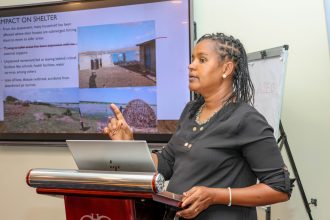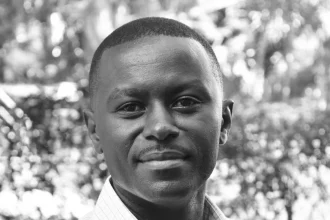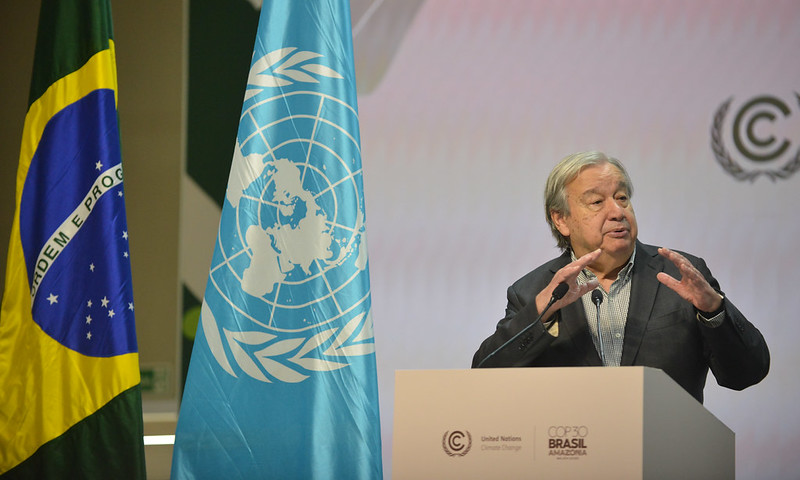The UN Secretary-General Antonio Guterres on Thursday affirmed his commitment to Indigenous Peoples, underscoring the need to work side-by-side with them, whom he called “the most effective guardians of biodiversity.”
Speaking at a meeting with with representatives of the Articulation of Indigenous Peoples of Brazil (APIB) to hear firsthand the urgent priorities of Indigenous Peoples, attending COP30, Guterres signaled support for land rights as a cornerstone of effective climate action.
Studies show that Indigenous-managed lands in Brazil store more carbon, preserve more biodiversity, protect human health and face significantly lower rates of deforestation than other lands in the country.
Citing a growing body of research, the leaders emphasized that securing land tenure, particularly the demarcation of Indigenous territories across Brazil, is one of the most powerful and proven climate solutions available today. The meeting follows the Government of Brazil’s recent announcement of the demarcation of ten Indigenous lands.
At COP30, 35 countries and philanthropies pledged $1.8 billion over the next five years to boost land titling for Indigenous Peoples, Afro-descendants, and local communities. Additionally, 15 governments committed to recognizing 160 million hectares of land.
“The world must truly recognize our care for Indigenous territories as a solution to the climate crisis. Our lands and our traditional ways of managing them must be acknowledged. And this is not only the responsibility of the Brazilian government — it is not only our responsibility — it is a global responsibility to protect our territories. Not just the Amazon, but all our lands: in the Pantanal, in the Caatinga, in every biome,” said Dinamam Tuxá, Executive Coordinator of APIB.
APIB leaders delivered a proposal calling for the inclusion of Indigenous demands in Brazil’s Nationally Determined Contributions. They argue that recognizing land demarcation as a climate solution should be a core target. The proposal also calls for stronger protection for defenders under threat and for placing Indigenous governance as a climate strategy.




